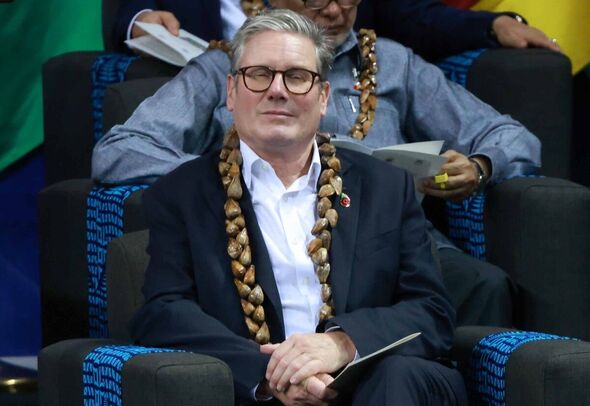Sir Keir Starmer failed to exclude language on slavery reparations from a joint statement signed by Commonwealth countries at the end of a summit.
The Prime Minister downplayed the prominence of reparatory justice on the agenda at the gathering in Samoa, insisting talks about climate resilience had instead been the “absolute priority” on Saturday (October 26).
Starmer, speaking at a press conference at the end of the Commonwealth Heads of Government Meeting (CHoGM), repeated his description of slavery as “abhorrent”, but said Britain’s position on paying for its role was “very, very clear”.
The UK has repeatedly ruled out offering reparations or an apology for Britain’s historical involvement in the slave trade.
However, the final communique signed by Commonwealth leaders acknowledged calls for a discussion on the matter. It said they “agreed that the time has come for a meaningful, truthful and respectful conversation towards forging a common future based on equity.”
The document said: “Heads, noting calls for discussions on reparatory justice with regard to the trans-Atlantic trade in enslaved Africans and chattel enslavement, and recognising the importance of this matter to member states of the Commonwealth, the majority of which share common historical experiences in relation to this abhorrent trade, chattel enslavement, the debilitation and dispossession of Indigenous People, indentureship, colonialism, blackbirding and their enduring effects, agreed that the time has come for a meaningful, truthful and respectful conversation towards forging a common future based on equity.
“Heads further agreed to continue playing an active role in bringing about such inclusive conversations addressing these harms, paying special attention to women and girls, who suffered disproportionately from these appalling tragedies in the history of humanity.”
Asked if the inclusion of such language in the final agreement showed he had lost the argument and damaged the UK’s relations with Commonwealth nations, Sir Keir said: “The theme of the day was chosen by the prime minister here in Samoa, and she chose resilience and climate.
“So I think that gives you a clear sense of the absolute priority here, and that’s not surprising.”
He added: “I should be really clear here, in the two days we’ve been here, none of the discussions have been about money. Our position is very, very clear in relation to that.”
Downing Street had already ruled out non-financial reparations and maintained that its position on the issue was “clear”.
Before the joint statement was issued, Britain conceded the issue of reparations could be included in the document.
Officials stressed that wouldn’t necessarily mean any change to the UK’s policy position.
